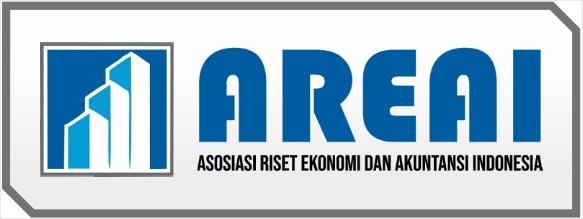Ternate Smart City Policy Implementation
DOI:
https://doi.org/10.61194/economics.v1i3.92Keywords:
Implementation, Smart City, Tenate CityAbstract
The implementation of Smart City Policy has been applied in several cities in Indonesia including Ternate City which has been applied since 2017. In its implementation there are still obstacles faced in the form of budget limitations, human resources and community participation. This research aims to find out the implementation of Smart City policy in Ternate City, this research uses descriptive with qualitative approach. The results of the study can reveal several important things related to the implementation of smart city policies such as; First, budget constraints due to budget refocusing factors that occur at almost all levels of government in order to focus on handling covid-19, so that the SPBE master plan draft has not been implemented and internet capacity spending is still small which results in not all areas of Ternate City getting free internet facilities. Second, the aspect of the availability of human resources that are representative and able to become a motor in the movement of smart city policy implementation. Diskomsandi still needs many more experts even though the current Diskomsandi staff are qualified enough for that, but on a further development scale, of course, the Ternate City Communication, Information and Standardization Office really needs more qualified experts. Third, the aspect of the Command Center, the unavailability of Command Center facilities where data related to the implementation of smart city policies can be centralized all at the Ternate City Communication, Informatics and Coding Office.
References
Aall, C., Dodds, R., Sælensminde, I., & Brendehaug, E. (2015). Introducing the concept of environmental policy integration into the discourse on sustainable tourism: a way to improve policy-making and implementation? Journal of Sustainable Tourism, 23(7), 977–989. https://doi.org/10.1080/09669582.2015.1032300
Alford, W. P., Weller, R. P., Hall, L., Polenske, K. R., Shen, Y., & Zweig, D. (2002). The human dimensions of pollution policy implementation: Air quality in rural China. Journal of Contemporary China, 11(32), 495–513. https://doi.org/10.1080/10670560220152300
Bénit-Gbaffou, C. (2018). Beyond the Policy-Implementation Gap: How the City of Johannesburg Manufactured the Ungovernability of Street Trading. Journal of Development Studies, 54(12), 2149–2167. https://doi.org/10.1080/00220388.2018.1460468
Carey, G., Nevile, A., Kay, A., & Malbon, E. (2020). Managing staged policy implementation: Balancing short-term needs and long-term goals. Social Policy and Administration, 54(1), 148–162. https://doi.org/10.1111/spol.12530
Celliers, L., Rosendo, S., Coetzee, I., & Daniels, G. (2013). Pathways of integrated coastal management from national policy to local implementation: Enabling climate change adaptation. Marine Policy, 39(1), 72–86. https://doi.org/10.1016/j.marpol.2012.10.005
Dodds, R. (2007). Sustainable tourism and policy implementation: Lessons from the case of Calviá, Spain. Current Issues in Tourism, 10(4), 296–322. https://doi.org/10.2167/cit278.0
Guo, S., Song, Q., & Qi, Y. (2021). Innovation or implementation? Local response to low-carbon policy experimentation in China. Review of Policy Research, 38(5), 555–569. https://doi.org/10.1111/ropr.12436
Hemker, J. (2017). The political economy of social policy implementation: Evidence from the decentralization of the RMI in France. French Politics, 15(2), 187–222. https://doi.org/10.1057/s41253-017-0029-6
Khanal, P. (2013). Community participation in schooling in Nepal: A disjunction between policy intention and policy implementation? Asia Pacific Journal of Education, 33(3), 235–248. https://doi.org/10.1080/02188791.2012.756390
Khodke, A., Watabe, A., & Mehdi, N. (2021). Implementation of accelerated policy-driven sustainability transitions: Case of bharat stage 4 to 6 leapfrogs in india. Sustainability (Switzerland), 13(8). https://doi.org/10.3390/su13084339
Kwartnik-Pruc, A., & Trembecka, A. (2021). Public green space policy implementation: A case study of Krakow, Poland. Sustainability (Switzerland), 13(2), 1–21. https://doi.org/10.3390/su13020538
Nudzor, H. P. (2014). An analytical review of education policy- making and implementation processes within the context of “decentralized system of administration” in Ghana. SAGE Open, 4(2), 1–11. https://doi.org/10.1177/2158244014530885
Pradhan, N. S., Fu, Y., Zhang, L., & Yang, Y. (2017). Farmers’ perception of effective drought policy implementation: A case study of 2009–2010 drought in Yunnan province, China. Land Use Policy, 67, 48–56. https://doi.org/10.1016/j.landusepol.2017.04.051
Wang, Z., Adu-Kumi, S., Diamond, M. L., Guardans, R., Harner, T., Harte, A., Kajiwara, N., Klánová, J., Liu, J., Moreira, E. G., Muir, D. C. G., Suzuki, N., Pinas, V., Seppälä, T., Weber, R., & Yuan, B. (2022). Enhancing Scientific Support for the Stockholm Convention’s Implementation: An Analysis of Policy Needs for Scientific Evidence. Environmental Science and Technology, 56(5), 2936–2949. https://doi.org/10.1021/acs.est.1c06120
Zainudin, M. Z., & Kamarudin, M. F. (2015). Impacts on the implementation of social policy: Comparative study in Malaysia and Indonesia. Asian Social Science, 11(17), 48–56. https://doi.org/10.5539/ass.v11n17p48
Anindra, F., Supangkat, S. H., & Kosala, R. R. (2018). Smart Governance as Smart City Critical Success Factor (Case in 15 Cities in Indonesia). IEEE.
Astutik, E. P., & Gunartin. (2019). ANALYSIS OF JAKARTA AS A SMART CITY AND THE USE OF INFORMATION AND COMMUNICATION TECHNOLOGY TOWARDS CIVIL SOCIETY. Scientific Journal Of Management Science, 41-58.
Dwiyanti, M. (2013). APPLICATION OF THE PRINCIPLES OF GOOD GOVERNANCE IN THE ADMINISTRATION OF LOCAL GOVERNMENT (A STUDY ON THE SECRETARIAT OF THE SIAU ISLANDS TAGULANDANG BIARO). vol 5 no 1, 1.
Hiar, H. (2017, 05 14). Songsong Smart City, Ternate City Launches Free Internet. Retrieved 04 30, 2021, from Liputan6.com: https://www.liputan6.com/regional/read/2950254/songsong-smart-city-kota-ternate-luncurkan-internet-gratis
Imran, M., & Armawan, I. (2019). OPTIMIZATION OF SMART CITY AS A MEDIUM OF COMMUNICATION DEVELOPMENT IN INDONESIA. Journal Of Development Communication, 17(1), 81-85.
Informatics, I. N.- G. (2021, August 31). How is the implementation of Lapor - SP4N public service in Diskomsandi Kota Ternate ? (A. Karissya, Interviewer)
Ministry of Administrative Reform and Bureaucratic Reform( KemenpanRB), Presidential Staff Office (KSP) and Ombudsman of the Republic of Indonesia (ORI). (2016). GUIDEBOOK FOR ORGANIZERS AND ADMINISTRATORSON PROVINCIAL/DISTRICT/CITY GOVERNMENTADOPTATION AND INTEGRATIONREPORT! - SP4NFOR BETTER PUBLIC SERVICES. Jakarta: Government Of The Republic Of Indonesia.
Moleong, L. J. (2009). Qualitative Research Methods. Bandung: PT. Teen Rosdakarya.
Pramesti, D. R., Kasiwi, A. N., & Purnomo, E. P. (2020). Comparison of Smart City implementation in Indonesia: Case Study: comparison of Smart People in Surabaya and Malang. Intenational Journal of Demos, 1(2), 163-173.
Spine, C. E., & Hariadi, M. (2016). Smart City Development Strategy and its challenges for urban communities. Journal of strategy and Business, 4(2), 159-176.
Wahyudi, A. A., Widowati, Y. R., & Nugroho, A. A. (2022). SMART CITY IMPLEMENTATION STRATEGY BANDUNG. Jurnal Good Governance, 18(1), 88-98.






